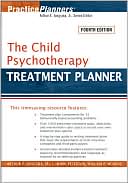Category Books
- Fiction Books & Literature
- Graphic Novels
- Horror
- Mystery & Crime
- Poetry
- Romance Books
- Science Fiction & Fantasy
- Thrillers
- Westerns
- Ages 0-2
- Ages 3-5
- Ages 6-8
- Ages 9-12
- Teens
- Children's Books
- African Americans
- Antiques & Collectibles
- Art, Architecture & Photography
- Bibles & Bible Studies
- Biography
- Business Books
- Christianity
- Computer Books & Technology Books
- Cookbooks, Food & Wine
- Crafts & Hobbies Books
- Education & Teaching
- Engineering
- Entertainment
- Foreign Languages
- Game Books
- Gay & Lesbian
- Health Books, Diet & Fitness Books
- History
- Home & Garden
- Humor Books
- Judaism & Judaica
- Law
- Medical Books
- New Age & Spirituality
- Nonfiction
- Parenting & Family
- Pets
- Philosophy
- Political Books & Current Events Books
- Psychology & Psychotherapy
- Reference
- Religion Books
- Science & Nature
- Self Improvement
- Sex & Relationships
- Social Sciences
- Sports & Adventure
- Study Guides & Test Prep
- Travel
- True Crime
- Weddings
- Women's Studies
The Child Psychotherapy Treatment Planner » (4th Edition)

Authors: Arthur E. Jongsma Jr., L. Mark Peterson, William P. McInnis, Peterson
ISBN-13: 9780471785354, ISBN-10: 0471785350
Format: Paperback
Publisher: Wiley, John & Sons, Incorporated
Date Published: October 2006
Edition: 4th Edition
Author Biography: Arthur E. Jongsma Jr.
ARTHUR E. JONGSMA, Jr., PhD, is Series Editor for the bestselling PracticePlanners. Since 1971, he has provided professional mental health services to both inpatient and outpatient clients. He managed a group private practice for twenty-five years and now is the Executive Director of Life Guidance Services in Grand Rapids, Michigan.
L. MARK PETERSON, ACSW, is Program Manager for Bethany Christian Services' Residential Treatment and Family Counseling programs in Grand Rapids, Michigan.
WILLIAM P. McINNIS, PsyD, is in private practice with Aspen Psychological Services in Grand Rapids, Michigan. He is also coauthor of the bestselling The Adolescent Psychotherapy Treatment Planner, Fourth Edition.
TIMOTHY J. BRUCE, PhD, is Professor and Interim Chair of the Department of Psychiatry and Behavioral Medicine at the University of Illinois College of Medicine in Peoria, Illinois.
Book Synopsis
The Bestselling treatment planning system for mental health professionals
The Child Psychotherapy Treatment Planner, Fourth Edition provides all the elements necessary to quickly and easily develop formal treatment plans that satisfy the demands of HMOs, managed care companies, third-party payors, and state and federal agencies.
- Organized around 34 main presenting problems, from blended family problems and children of divorce to ADHD, attachment disorder, academic problems, and speech and language disorders
- Over 1,000 prewritten treatment goals, objectives, and interventions—plus space to record your own treatment plan options
- Easy-to-use reference format helps locate treatment plan components by behavioral problem
- Designed to correspond with the newest editions of the Child Psychotherapy Progress Notes Planner, Third Edition and the Child Psychotherapy Homework Planner, Second Edition
- Includes a sample treatment plan that conforms to the requirements of most third-party payors and accrediting agencies (including CARF, JCAHO, and NCQA)
- New edition features empirically supported, evidence-based treatment interventions
Additional resources in the PracticePlanners® series:
Progress Notes Planners contain complete, prewritten progress notes for each presenting problem in the companion Treatment Planners.
Homework Planners feature behaviorally based, ready-to-use assignments to speed treatment and keep clients engaged between sessions.
For more information on our PracticePlanners® products, including our full line of Treatment Planners, visit us on the Web at: www.wiley.com/practiceplanners
Table of Contents
PracticePlanners® Series Preface.
Acknowledgments.
Introduction.
Sample Treatment Plan.
Academic Underachievement.
Adoption.
Anger Management.*
Anxiety.*
Attachment Disorder.
Attention-Defi cit/Hyperactivity Disorder (ADHD).*
Autism/Pervasive Developmental Disorder.*
Blended Family.
Bullying / Intimidation Perpetrator.
Conduct Disorder/Delinquency.*
Depression.*
Disruptive / Attention-Seeking.
Divorce Reaction.
Enuresis / Encopresis.*
Fire Setting.
Gender Identify Disorder.
Grief/Loss Unresolved.
Low Self-Esteem.
Lying / Manipulative.
Medical Condition.*
Mental Retardation.
Obsessive-Compulsive Disorder (OCD).*
Oppositional Defiant.*
Parenting.*
Peer/Sibling Conflict.
Physical/Emotional Abuse Victim.
Posttraumatic Stress Disorder (PTSD).*
School Refusal.
Separation Anxiety.*
Sexual Abuse Victim.
Sleep Disturbance.
Social Phobia/Shyness.*
Specifi c Phobia.*
Speech / Language Disorders.
Appendix A: Bibliotherapy Suggestions.
Appendix B: Professional References for Evidence-Based Chapters.
Appendix C: Index of Therapeutic Games, Workbooks, Tool Kits, Videotapes, and Audiotapes.
Appendix D: Index of DSM-IV Codes Associated with Presenting Problems.
*indicates that the chapter contains Objectives and Interventions consistent with those found in evidence-based treatments.
Subjects
 Psychology
Psychology  Clinical Psychology
Clinical PsychologyNonfiction
 Psychology
Psychology  Psychology - Theory, History & Research
Psychology - Theory, History & ResearchPsychology & Psychotherapy
 Clinical Psychology
Clinical Psychology  Child & Adolescent Psychotherapy
Child & Adolescent PsychotherapyPsychology & Psychotherapy
 Psychological Disorders
Psychological Disorders  Child & Adolescent Psychotherapy
Child & Adolescent PsychotherapyPsychology & Psychotherapy
 Psychology - Theory, History & Research
Psychology - Theory, History & Research  Adolescent Psychology & Psychiatry
Adolescent Psychology & PsychiatryMedical Books
 Psychology & Psychotherapy
Psychology & Psychotherapy  Clinical Psychology
Clinical PsychologyMedical Books
 Psychology & Psychotherapy
Psychology & Psychotherapy  Psychological Disorders
Psychological DisordersMedical Books
 Psychology & Psychotherapy
Psychology & Psychotherapy  Psychology - Theory, History & Research
Psychology - Theory, History & Research
